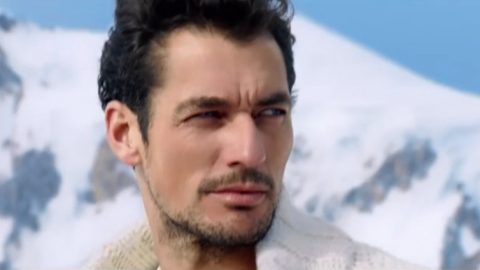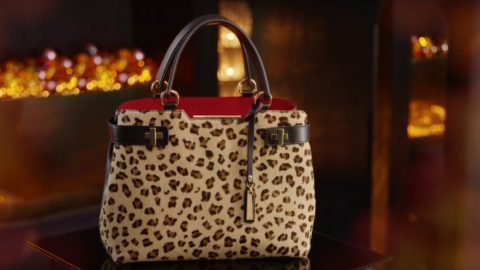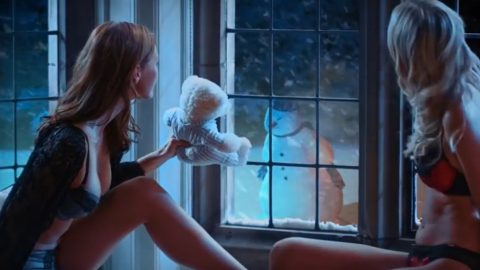In a slight break with tradition, our view of adland’s musical offer this month focuses on a clutch of names more famous for their small (and large) screen appearances than their chart placings.
It is easy to forget how big a star David Soul was in the late 1970s. Back in a day when talent shows and cooking contests were nowhere to be seen in the Saturday night schedules, Britain’s TV bosses relied upon US cop-cum-buddy dramas to attract family audiences and boost ratings. Few proved more popular or iconic than BBC 1’s Starsky And Hutch. Featuring Soul in one of its two leading roles, the series ran for four years and over 90 episodes during which time he became a housewives’ heartthrob.
But music was always David Solberg’s first love. And prior to any number of appearances in top TV series ranging from Flipper and Star Trek to Streets Of San Francisco, he made his TV debut in 1966 as a masked singer, known as The Covered Man, on the controversial Merv Griffin’s left-leaning chat show.
So as soon as he was established as a small screen supercop David Soul signed a deal with New York indie label Private Stock – joining a roster which included a nascent punk pop band called Blondie – and was teamed up with Tony Macaulay and Geoff Stephens, a pair of premier UK pop writers with credits including Baby, Now That I’ve Found You, Let The Heartaches Begin, The Crying Game and Winchester Cathedral.
David Soul hit right out of the box with the melancholic Don’t Give Up On Us Baby. It topped the charts on both sides of the Atlantic in 1976 and was followed up a year later by another UK Number One in the shape of Silver Lady. This, for those under a certain age who won’t recognise it immediately, is the softcore country song National Express has harnessed to a new TV campaign which also features a starring role for Soul himself as a singing coach driver.
No longer quite a svelte as he used to be, David Soul still retains the old charisma. Since moving to London and becoming a British citizen in 2004, he has trodden boards in West End productions such as Jerry Springer – The Opera as well as proving a shoe-in for regular cameo and support roles in popular TV programmes such as Little Britain, Dalziel & Pascoe and Lewis. Needless to say Soul also had a bit part in the 2004 film version of Starsky And Hutch in which his original character was played by Owen Wilson.
Another Hollywood jobbing actor who shot to fame and had his career defined by a single silver screen role was Robert Preston. His craggy face and winning smile graced any number of B movie Westerns until he was picked, above Frank Sinatra, to star in the 1962 film version of the Broadway smash The Music Man.
Preston had actually performed the part – and won a coveted Tony Award as a result – on the Street of Dreams some five years earlier. So he knew it inside out already.
The Music Man included showstoppers like Seventy-Six Trombones and the same Till There Was You with which the Fab Four famously serenaded Her Majesty the Queen at the 1963 Royal Command Performance and covered on their second album With The Beatles. It won the first ever Grammy for Best Original Cast Album and was subsequently singled out by the Library Of Congress in 2005 as being "culturally, historically, or aesthetically significant" and preserved in the United Sates National Film Registry.
It was the brainchild of veteran tunesmith Meredith Willson (sic), who had racked up his first number one hit with a Glenn Miller tune called You And I in 1941 and was also responsible for the evergreen It’s Beginning To Look Like Christmas. In 1962 Willson was asked by President Kennedy to compose the theme song for a national youth fitness program and came up with Chicken Fat.
Sung by Robert Preston and released by Capitol, Chicken Fat is more militaristic in style and content than the aerobic workout songs which became so popular in the 1970s and 1980s. But as featured in the latest Apple iPhone 5s spot it reveals a certain period charm – although, with the British Invasion literally months away, Willson’s efforts probably sounded a little old-fashioned to early 1960s pop kids from the get-go.
Not that the younger generation always automatically shy away from the sort of songs their parents – or even their grandparents – enjoyed. In 1995, for instance, Bjork enjoyed her biggest hit ever with the Number Four placed It’s Oh So Quiet, a novelty jazz number which originated in Germany in the late 1940s as Und Jetzt Ist Es Still before English lyrics were added by the noted translator Bert Reisfeld.
The Icelandic pixie heard it from the B side of a Betty Hutton single Murder, He Says which was released in the US on RCA in 1951. Throughout the 1940s, platinum blonde Hutton had been one of Hollywood’s biggest box office attractions and sealed her reputation in musicals in 1950 when she took over the starring role in Annie Get Your Gun from an exhausted Judy Garland.
But despite a lead role in the Oscar-winning Greatest Show On Earth two years later, Hutton was soon to fall out with LA’s studio bosses. There were various attempts to re-invent her for the TV age, but, plagued by nervous breakdowns, fits of depression and addiction to prescription pills, her career went into a tailspin from which it never quite recovered.
Following her death in 2007 a New York Times obituary writer described her as a “brassy…performer with a voice that could sound like a fire alarm.” Take a listen to her original take of It’s Oh So Quiet on Travelodge’s Get Up And Go ad and you’ll see what he meant.











